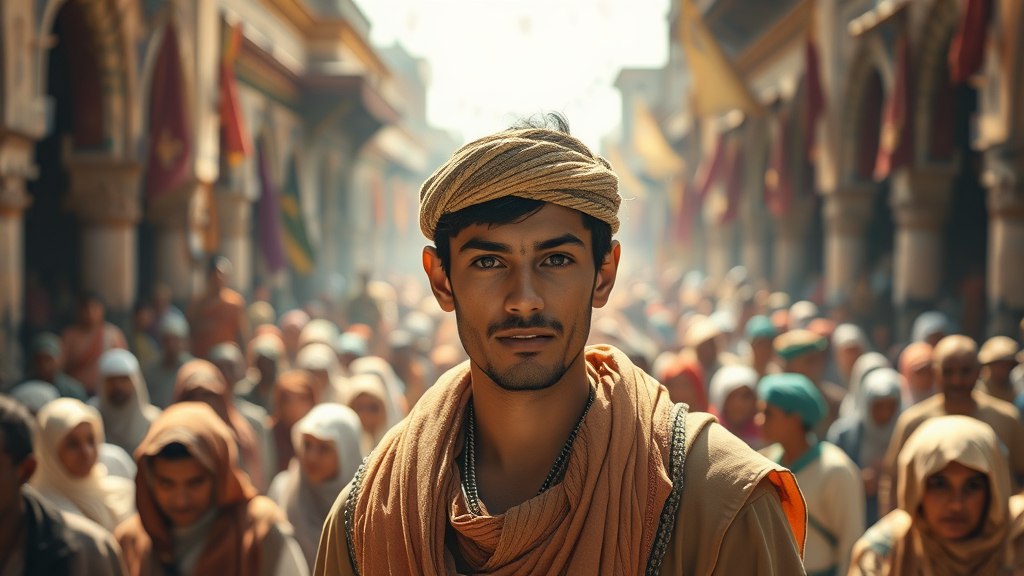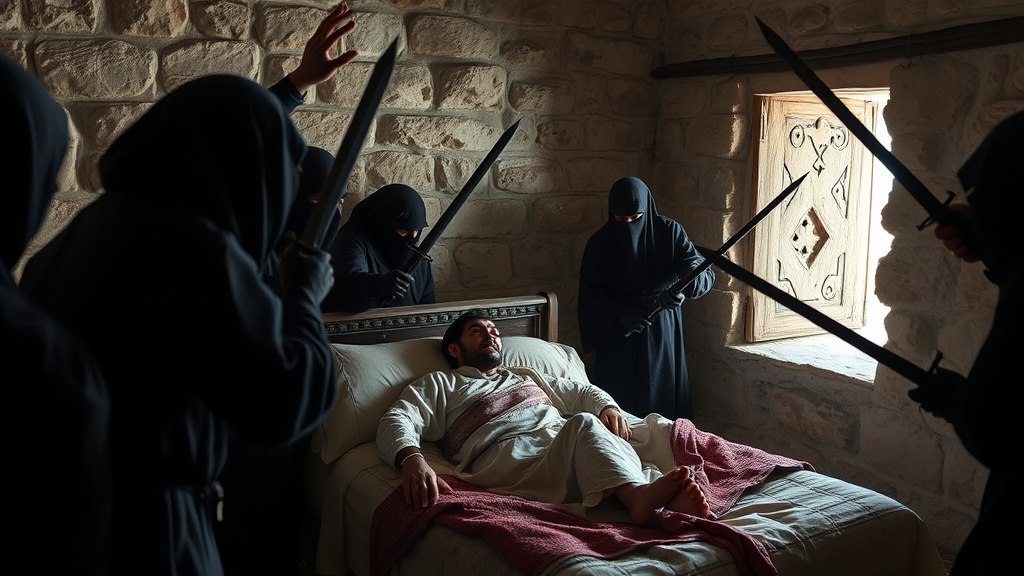In the name of Allah, the Most Gracious, the Most Merciful.
I want to tell you about the most important part of Islamic history, which is the migration of the Prophet from Mecca to Medina. This event became a turning point in history and marked the beginning of the Islamic community's calendar from that day onward.
However, before narrating this event, I should tell you how the people of Yathrib became acquainted with the Prophet of Islam and how they prepared the ground for the establishment of an Islamic government for the Prophet and his companions.
You might find it interesting that the spark of this event was ignited by a passionate and truth-seeking young man.
Musab was a young man who came to Mecca during the Hajj season. When he arrived in Mecca, he was told that a madman had emerged from idol worship and was inviting people to a new religion of monotheism. They advised him to avoid listening to him. However, Musab became curious to see this person because he had heard from the Jewish elders in Yathrib that a prophet would come and bring a new religion and way of life.
Musab headed to the Kaaba and saw the Prophet in a corner, engaged in reciting the Quran. He was captivated by the sound and tone of the Quran and moved closer to hear better. Eventually, the Prophet noticed him and said, "O young man who has just arrived in Mecca." Musab replied, "Yes. What is this that you are reciting?" The Prophet said, "It is the Quran, the word of God that has been revealed to me."

Musab asked, "What does the Quran teach us?" The Prophet replied, "It teaches brotherhood and kindness towards one another, the struggle against oppression and the pursuit of justice, and that we only live a few years in this world. After death, people are divided into two groups: those who were kind and righteous will go to paradise, while those who were oppressive and unjust will be sent to hell. The Quran provides us with a program to live the best life in this world, so that after death, our souls may find peace and we can live in paradise for eternity."
Musab was enchanted by the Prophet's words and accepted Islam. He then returned to his city, Yathrib, and began to promote Islam. Many people accepted Islam and decided to visit the Prophet. They traveled to Mecca and met the Prophet, saying that they had tribes in Yathrib that were constantly in conflict and war, and they lacked a leader to manage them. They invited the Prophet to come to Yathrib and be their leader, as the people were tired of war and strife.
This group made a pact with the Prophet to ensure the safety of himself and his companions and to obey him. The Prophet also committed to implementing divine commands in Yathrib and guiding them to the right path. This pact was made secretly, away from the eyes of the leaders of Quraysh, and the preparations for the Prophet's migration to Medina were set in motion.
The Prophet awaited the divine command to migrate and prepared his companions, giving them hope for the end of their pain and suffering. Eventually, the leaders of Quraysh decided to kill the Prophet, and to prevent retaliation, they chose one person from each tribe to carry out the assassination of the Prophet at night.
But the Almighty God informed the Prophet of their plot and commanded him to migrate from Mecca to Yathrib. The Prophet gathered his companions and told them that they would migrate at night, and he only wanted one person to sleep in his bed so that the enemies would not realize he was gone. Historical sources state that no one but Ali agreed to sleep in the Prophet's place. This is one of the virtues and acts of bravery of Imam Ali, which both Shia and Sunni acknowledge.
That night, the Prophet set out for Medina with Abu Bakr, and forty representatives of the tribe entered the Prophet's house wearing black cloaks. They saw someone sleeping, and one of them pulled the blanket aside so that another could kill the Prophet with a sword. Another shouted, "Don't strike! He is not Muhammad; he is Ali!"
In anger, they asked Ali, "Where is Muhammad?" Ali replied, "Did you entrust him to me that you ask me?" They said, "He has fled; go after him."

They went in search of the person who was very skilled at tracking and recognized the footprints of the Prophet, following him.
From God, a message was sent to Muhammad that they were coming after him and to hide in a cave along his path, assuring him that God would protect his life from the enemies. The Prophet and Abu Bakr entered the cave, and the Prophet reassured Abu Bakr not to be afraid, for God had promised to protect them.
When they entered the cave, by God's command, a spider came and spun a web at the entrance of the cave, and a dove came and built a nest in front of the spider's web, laying eggs. When the representatives of the Quraysh arrived at that place, the tracker said, "They have hidden inside the cave; go inside."
The representatives of the Quraysh said, "Have you gone mad? The entrance of the cave is covered with a spider's web; it is clear that no one has been inside for a long time, and the dove has laid eggs." They said, "This man has deceived us," and they killed him with a sword before returning from the entrance of the cave.
Thus, they were unable to kill the Prophet. The Prophet emerged from the cave in the morning and headed towards Yathrib. It was decided that Ali would return the trusts that were with the Prophet to the people and bring the Prophet's daughter and family to Yathrib.
You might find it interesting to know how they reached Yathrib and the adventures and challenges they faced. So, stay tuned for the next part with me!

دیدگاه خود را بنویسید